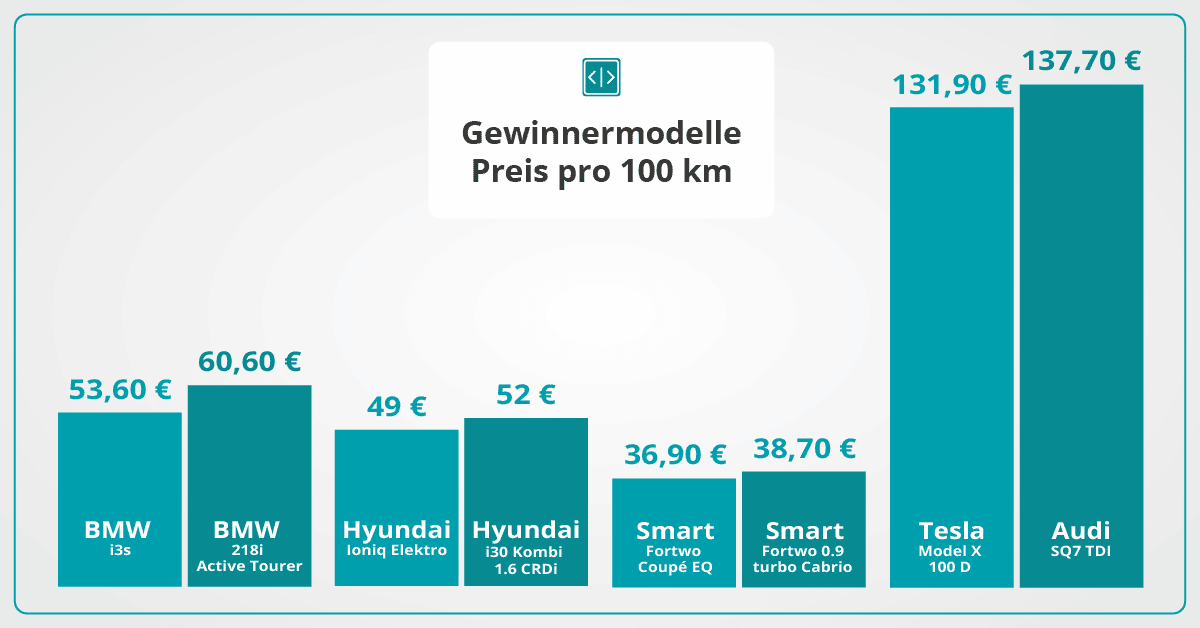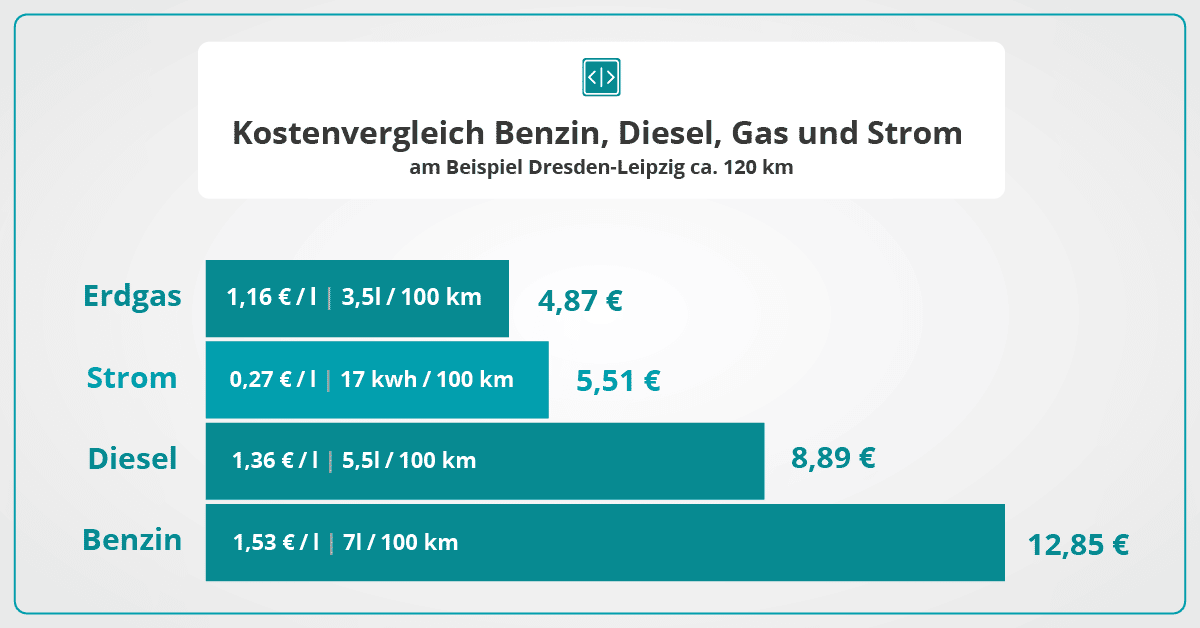Emission-free, sporty to drive, good for the image - these arguments are often not decisive in the end when it comes to the hard facts. umschalten.de took a look at whether electric cars can keep up financially with combustion engines in a cost comparison.
ADAC: THESE E-CARS ARE CHEAPER THAN A PETROL OR DIESEL CAR
The ADAC (Allgemeine Deutsche Automobil-Club e.V.) recently compared models in different classes and found that "electric cars are often surprisingly inexpensive". When comparing costs, it was important for the car professionals to be able to make statements about the actual costs that were as comparable and comprehensive as possible. So attention was paid not only to equipment and energy prices, but also to engine performance, realistic consumption figures, insurance, tax and workshop costs. Even the anticipated depreciation was included in the calculation.

The result is surprising: for half of the models compared, the electric car beats the petrol or diesel model in terms of costs per kilometre driven over a holding period of 5 years with an annual mileage of 15,000 kilometres. The winners are the BMW i3 (compared with the BMW 218i), the Hyundai Ioniq Elektro (compare with the Hyundai i30), the Smart Fortwo and the Tesla Model X 100 D (compare with the Audi SQ7 TDI). But how is that possible?
Admittedly: In the class of a Tesla with a gross list price of over 120,000 euros, costs are probably no longer the decisive criterion. However, it is noticeable that especially in the case of smaller and medium-sized vehicles, the electric car can come out ahead, depending on the model. An important influence on the different prices is the relatively low price of electricity. You can't "fill up" everywhere for 0.30 euros/kWh, but you can do so free of charge in other places. Compared with the currently high price of diesel, this sounds tempting even for frequent drivers. Furthermore, discounts such as the current eco-rebate are relevant, and lower maintenance costs for electric vehicles also play an important role.
COSTS FOR THE E-CAR: THESE ARE THE PLACES WHERE YOU CAN SAVE MONEY
Irrespective of the ADAC's calculation, there are other ways in which you can save money when driving an e-car. It is worth comparing the costs of insurance policies, as more and more are offering more favorable rates for electric cars. Allianz, for example, gives electric and hybrid cars a 20 percent discount, and more benefits are also included. In addition, there are government incentives (0 percent motor vehicle tax), no AdBlue, or savings on annoying main inspection and inspection dates or particulate emissions stickers.

Electricity is particularly cheap if you have the option of charging your e-car at home or at work using the household electricity. At less than 30 cents per kWh, you can drive from Dresden to Leipzig for less than 6 euros, assuming a consumption of around 20 kWh per 100 kilometres. By way of comparison, an averagely efficient diesel vehicle with a consumption of 5 litres per 100 kilometres will drive the distance for more than 8 euros at the current frequent diesel price of just under 1.40 euros.
BUILDING A FLEET: FIRST INVEST, THEN PROFIT?
Unfortunately, the conversion for home can cost money and nerves. This is because the installation of the corresponding infrastructure at the car park in the company or in the underground garage in the apartment building creates new costs. As Focus noted in an article from April 2017: "The future often fails because of very banal things.
Even though there has been some movement in the meantime, it is still very difficult for tenants: If the landlord does not agree to the installation of a wallbox, the electric car cannot be charged in the parking space at home. It is easier in the case of company property: insofar as no major conversions and building permits are necessary, a wallbox can already be used to charge the electric car at a favourable price. Many regional electricity providers are also happy to support their customers in this endeavour and share their experiences, such as SachsenEnergie.
CONVERSION TO E-UTILITY VEHICLES CAN BE WORTHWHILE
According to a study by PROGENIUM Strategieberatung, electric cars are particularly worthwhile professionally in the transport and logistics sector. In the case of smaller vans, tradesmen and suppliers save money by choosing a vehicle powered by electricity. The study looked at fixed costs, workshop and operating costs as well as depreciation.
Interesting in this context is a new product from Volkswagen that was presented at the IAA Commercial Vehicles. The already well-known e-Caddy now goes by the name of ABT e-Caddy. The pioneers in the e-mobility sector have further developed the well-known electric van so that it can cover approx. 220 kilometres on one charge. The e-Caddy will be available as a taxi and a van version from mid-2019.
CONCLUSION COST COMPARISON: IT MAY BE CHEAPER TO DRIVE AN ELECTRIC CAR!
A few years ago, only the e-pioneers could have imagined that electric cars could be cheaper than combustion engines. The fact that some models are now able to make it in a direct comparison shows that it also makes financial sense to think about electromobility. It is particularly cheap to drive if you get your electricity from the socket at home or at work. In general, however, some e-car classes are more worthwhile than others. An individual calculation is the safest way here. Simply send us your request to info@umschalten.de. We will be happy to advise you.



